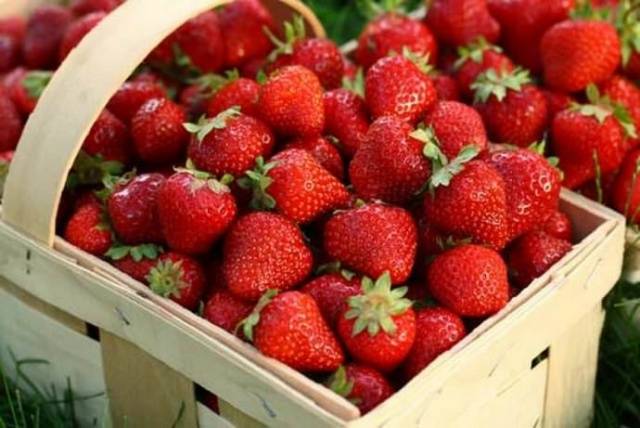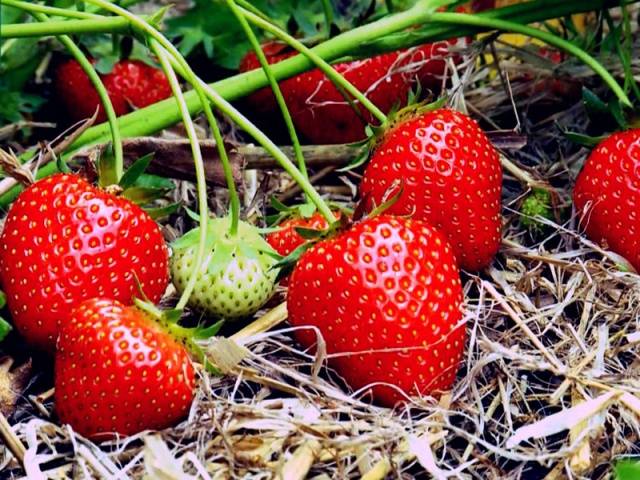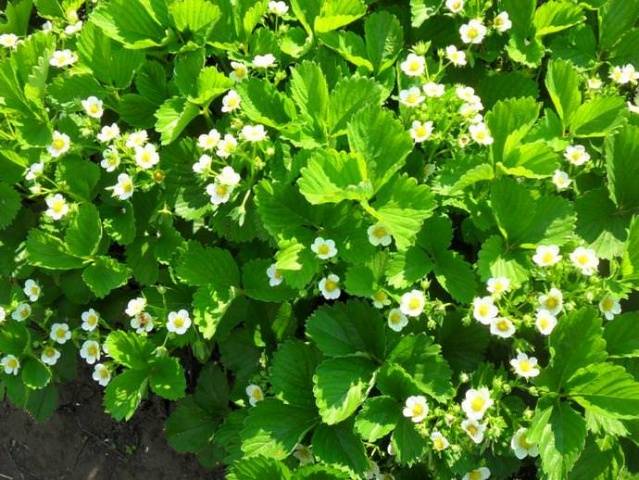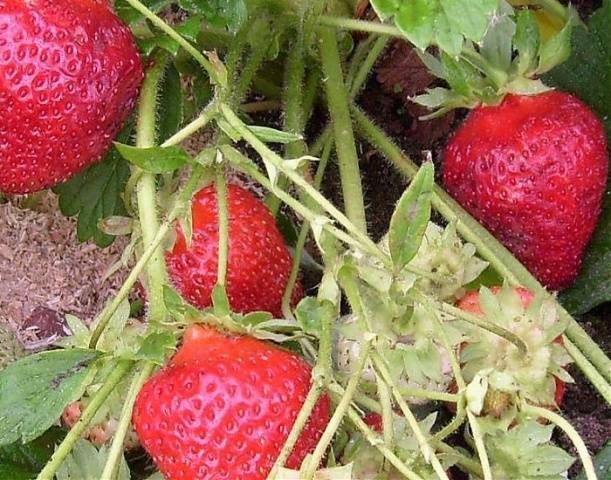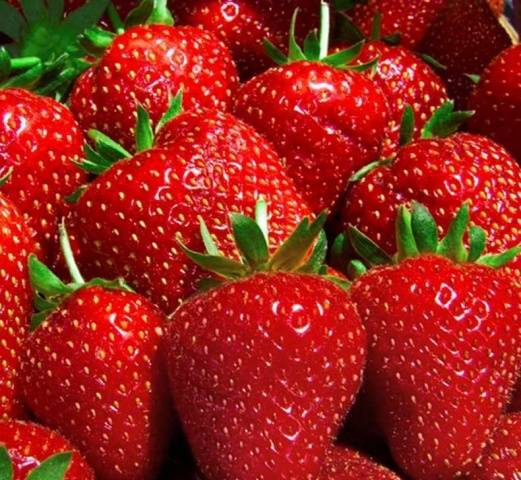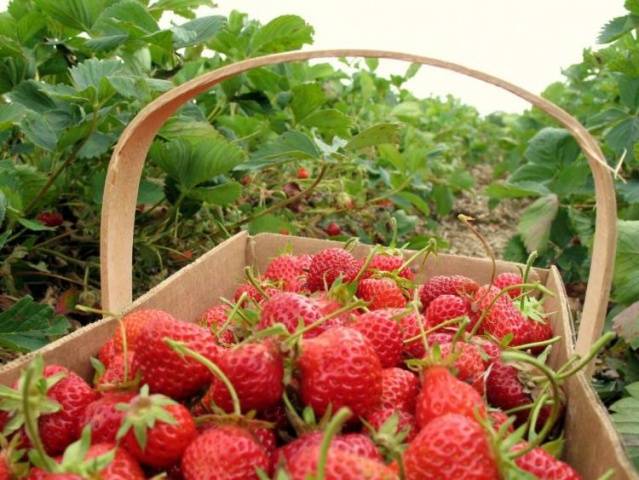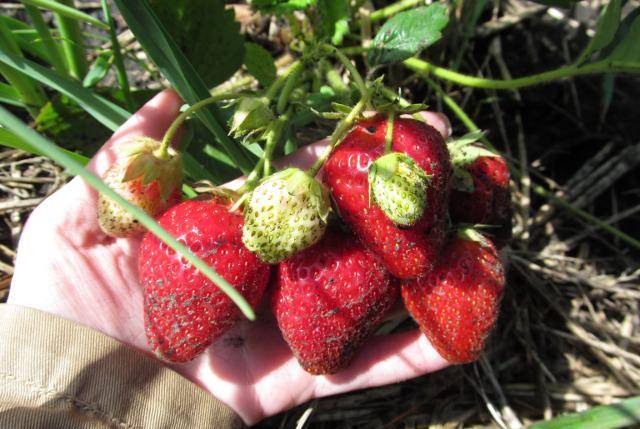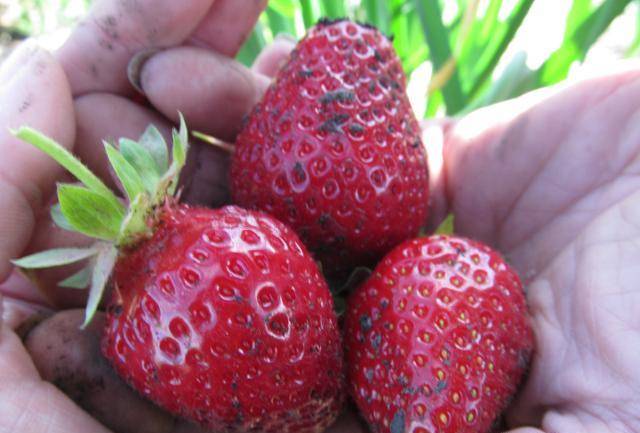Content
It's hard to argue with love for strawberries - it's not for nothing that this berry is considered one of the most delicious and best-selling in the world. But caring for it is not the easiest thing - you cannot call it a berry for the lazy. But busy summer residents and gardeners burdened with a bunch of other worries dream of a variety that, at least, would be resistant to many troubles, and the bushes of which could not be treated several times per season with various chemistry.
Perhaps one of the varieties that meet these requirements is the relatively recently bred strawberry variety Bereginya, reviews of which, along with a photo and its description, can help you decide whether it is suitable for your specific conditions or not. The advantages of this strawberry variety are more than enough, there are also disadvantages, so it is important to weigh the pros and cons and understand what exactly you want from the strawberries in the first place.
History of creation
Bereginya's strawberry owes its birth to a group of breeders led by S.D. Aitzhanova, working at the Kokinsky support point of VSTISP, operating on the basis of the Bryansk Agricultural Academy. The parents of this variety were the famous Nightingale - also the fruit of the creation of S.D. Aitzhanova, known for its resistance to almost all the main misfortunes that pursue strawberries (frosts, winter thaws, diseases, pests), and Induka, a Dutch variety that boasts of its good yields. Strawberry Bereginya successfully combined the main parental qualities, which aroused great interest among both amateur gardeners and professionals.
It was zoned only in the Central Federal District, but this variety of strawberries is happily grown in the territory from the Krasnodar Territory to the Bryansk Region and even in the Urals and Siberia.
Description of the variety
Strawberry Bereginya belongs to the type of traditional short-day strawberries, not remontant, that is, ripening only once a season.
The timing of flowering and ripening is quite late, the berries begin to ripen only from the end of June - in July.
Bushes of medium size have a semi-spreading shape and dense foliage. A medium-sized pinkish mustache is formed in significant numbers, so breeding problems are not expected in this variety.
Medium-sized shiny leaves are light green in color, slightly ribbed and moderately wrinkled. They have weak pubescence. Leaves have wide, obtuse denticles. The leaf petioles are medium in size, more pubescent than the leaves. Stipules are long, wide, green.
Medium in thickness, densely pubescent peduncles are located at the level of the leaves. The flowers are white, not twisted, of medium size, they are bisexual. The inflorescence is multi-flowered, compact.
Strawberry Bereginya is distinguished by rather high yield rates - on average, 350-400 grams of berries can be harvested from one bush. In the second year, the yield even increases and is about 600 grams per bush. For farmers, it will be interesting to estimate the yield per hectare, which ranges from 15 to 30 tons of berries. Large variation in indicators is determined by climatic factors and growing conditions.
The variety is distinguished by increased frost resistance, it is able not only to withstand frosty winters without special shelters, but also, even worse, thaws in the middle of winter. When, after almost above-zero temperatures, frosts again come. Since Beregin's kidneys wake up late, she does not have time to wake up during thaws. Frost resistance is estimated by the coefficient of freezing equal to 1-1.5.
Strawberry Bereginya is distinguished by the highest resistance to fungal diseases of the leaves from many domestic varieties. It also resists verticillium wilt and strawberry mites well.
In a damp summer, strawberries can be severely affected by gray rot, therefore the author of this variety herself recommends Bereginya strawberries more for cultivation in southern regions where gray rot is rare. In temperate latitudes, it is necessary to maintain a sufficient distance between the bushes to ensure their ventilation. It is also advisable to mulch plantings and aisles with special black agrofibre or straw.
Both the resistance to dry conditions and the heat resistance of this strawberry variety are very high.
Characteristics of berries
The fruits of the strawberry variety Bereginya are characterized by the following characteristics:
- The shape of the berries is correct, blunt-conical, without a neck.
- The berries of this variety cannot be called gigantic, but they are not small either: on average, the mass of one berry is about 12-14 grams. In particularly favorable conditions, the weight of the berries reaches 25-26 grams.
- The color of Beregini berries is orange-red, they are distinguished by a shiny surface.
- The pulp is juicy, dense, red in color, without pronounced voids in the center of the berry.
- The berries are distinguished by a rich sweet-sour taste with the aroma of wild strawberries. Professional tasting score of fresh berries is 4.5 points.
- The berries contain: sugars - 5.7%, ascorbic acid - 79 mg / 100 g, acids - 0.8%.
- Due to the density of the berries, they are well stored and freely transported.
- The purpose of the berries is also quite universal - you can create many sweet dishes from them, including preparing them for the winter. The berries can be frozen and of course eaten directly from the bush.
Advantages and disadvantages
It should be noted the following advantages of Bereginya strawberries:
- High taste and marketability - harmonious taste goes well with good density of the berry.
- Quite good sizes of berries, moreover, retain their size by the end of fruiting.
- Good yield.
- There are no problems with reproduction - a lot of whiskers are formed, the sockets take root well.
- Good frost resistance and winter hardiness.
- High resistance to the main pests and diseases of strawberries.
Among the shortcomings, only the susceptibility to the disease of berries with gray rot in damp weather conditions can be noted.
Gardeners reviews
Gardeners leave mostly favorable reviews about this strawberry variety. Many people like the attractive appearance of the berries, and their taste and aroma. Disease resistance allows you to reduce or even negate the number of treatments, which frees up both time and effort.
Conclusion
Strawberry Bereginya will allow many gardeners to get a harvest of sweet and juicy berries even in the sunless middle latitudes of Russia. With the initial observance of all the rules of planting and care, it will not require any extra effort and excessive care from you, but it will delight you with a good harvest.
